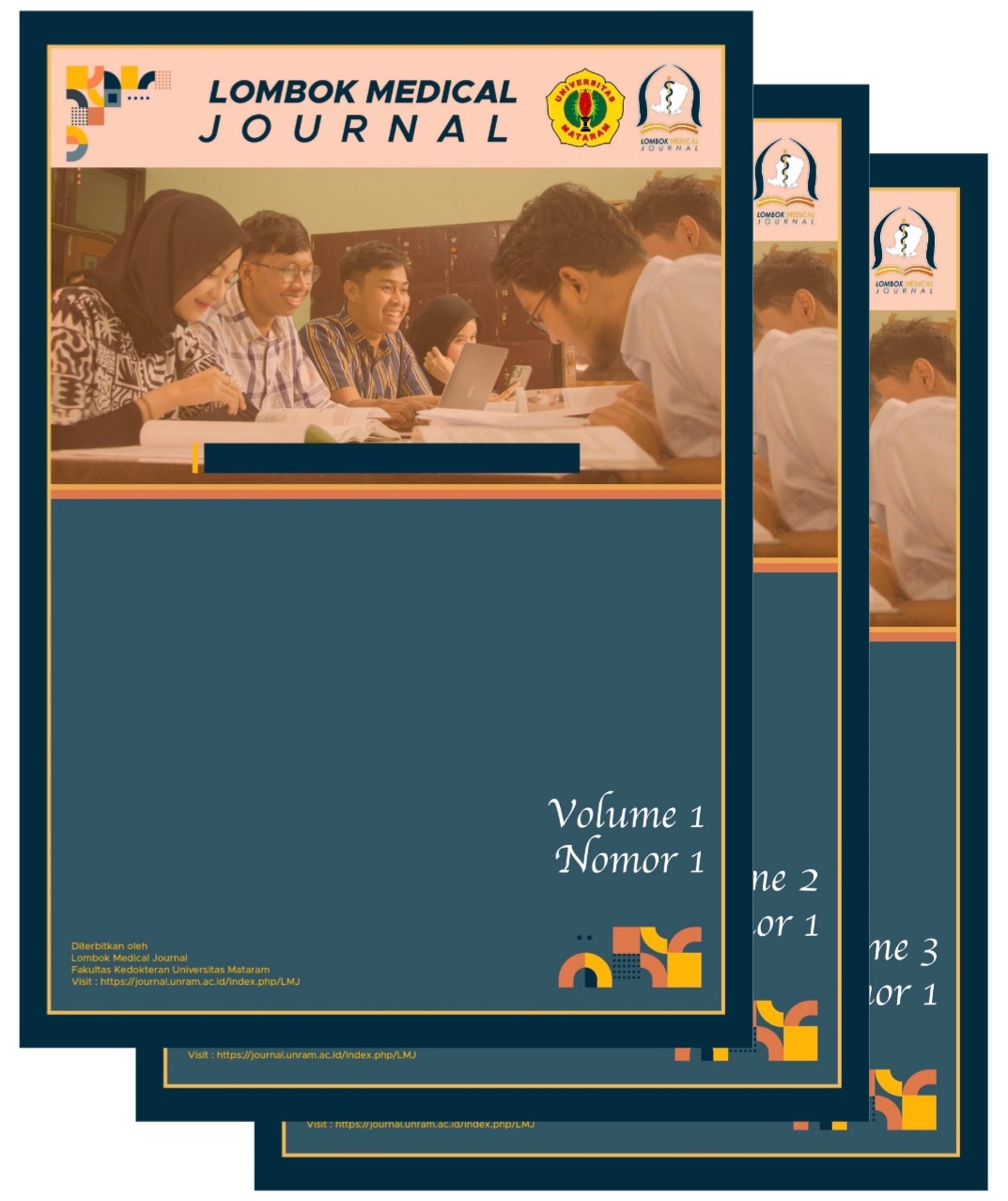Pulmonary Tuberculosis with Pneumonia, Pneumoconiosis, and Drug Induced Liver Injury (DILI)
DOI:
https://doi.org/10.29303/lmj.v4i2.5564Keywords:
Tuberculosis, pneumonia, pneumoconiosis, pulmonary mycosis, drug induced liver injury (DILI)Abstract
Tuberculosis (TB) is an infectious disease caused by Mycobacterium tuberculosis. According to the World Health Organization (WHO), TB is one of the top 10 causes of death in the world. TB is divided into pulmonary TB and extrapulmonary TB. Extra-pulmonary TB is defined as TB involving organs other than the lungs (pleura, lymph nodes, abdomen, skin, joints, bones, and other organs). There were 10.4 million cases of TB globally in 2017, and it is estimated that there will be 845.000 new cases of pulmonary TB in Indonesia in 2019. In 2018 approximately seven million new and relapsed TB cases were reported worldwide. The death rate due to TB may reach 1.5 million cases. TB patients can develop several complications before, during or after treatment, including coughing up blood, pneumothorax, respiratory failure, and heart failure. TB patients may have several comorbidities, including pneumonia, pneumoconiosis, and drug induced liver injury (DILI).























